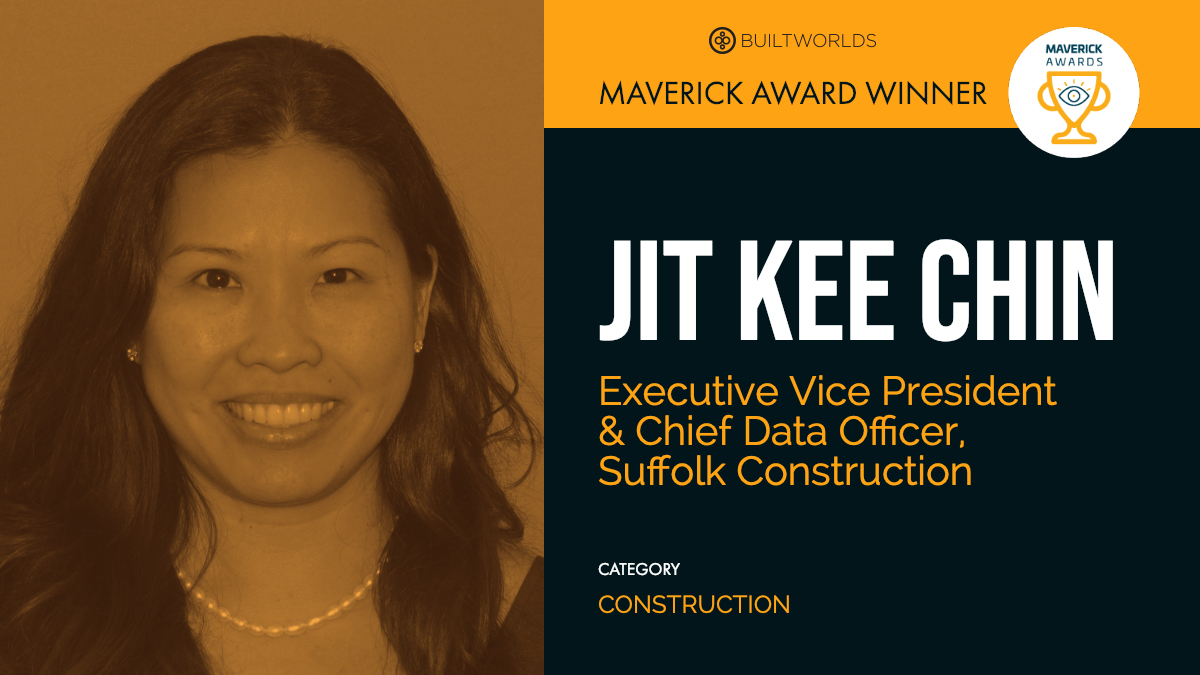
I'm Dustin Anderson, and I am vice president of Sage Construction and Real Estate.
What do you do for Sage?
I am responsible for Sage's Construction and Real Estate Business Unit. I work collaboratively with my colleagues to set the strategy on everything from product direction and marketing, to sales and customer support. I'm always asking how we can ultimately drive this business forward.
Sage is a really well-known and respected company all throughout the industry. Can you give me the company's thousand-foot-view pitch?
Sure. We offer construction solutions that integrate business financials and operations, giving our customers the information they need to make data-driven decisions and tightly manage their projects. Our customers use our flagship products (construction accounting, project management and estimating) to streamline processes and enhance communication and collaboration both in the office and on the job site.
What are Sage's core values and then how do those apply to the way you all conduct business?
Sage named a new CEO back in November: Steve Hare. His message to us, as colleagues, was straight forward. Our goal is to become a great SaaS—or software as a service— company for our customers and colleagues alike. I boil that down to two things- simplicity and ease of use. Those are the core tenants of what we're trying to accomplish. We have great feature function and we can do a lot of things in our software, but ultimately, we're trying to make the lives of the people who use the software simpler, and the product easier to use.
Additionally, we have a compliance guarantee. Being an ethical accounting software provider means taking responsibility for compliance and making sure that our customers are following local and governmental guidelines.
Over the past few months, I've written a lot about construction tech and software companies. How is Sage different from all Autodesk, Procore, and Oracle?
Those are all great companies and technology leaders in the industry, in fact, we partner very closely with both Autodesk and Procore. I’d say what sets us apart is our message around the power of choice. We don't believe that any one vendor can solve all the technical needs of a construction company. We're in the process of making our products as open as possible utilizing API’s and allowing for the integration of third-party tools. From our standpoint, it's less about being able to deliver everything the customer needs and more about the power of choice and making sure that they can choose the right tool for the right job.
That's a really great way to phrase it. Honestly, there's no one end-all-be-all solution. We use a lot of integrations and we use a lot of different solutions to cover different points of projects.
Yes. I think it's going to become more profound, to be perfectly honest. The way technology is being developed and deployed today—with agile development and true cloud platforms—this change is happening very rapidly. There's no way that any one vendor can develop the deep functional expertise required for all of the industry’s vast requirements. all this. Our response to that is listening to the market and relying on that power of choice.
This is a really nice lead into my next question. The AEC industry is notoriously behind the eight-ball when it comes to adopting tech in general. But over the past few years, we've seen a lot of construction tech tools being used more effectively on the jobsite. Why do you think these tools are so vital today?
I think these solutions give us a chance to change the productivity curve that we’ve traditionally lagged behind other industries. Construction has basically been a flat line from a labor productivity standpoint for 50 years. That's because the technology wasn't necessarily ready for the job site. And it is today. These tools are the only way that we'll see that productivity curve change. Other industries, like manufacturing and distribution, have seen a three-fold increase in productivity. We are just at the tip of the iceberg in the AEC industry.
These solutions weren't ready for the job site simply because mobile solutions like tablets and smartphones only became a reality in the last decade.
You're right. It's all about mobile device connectivity. And those things weren't readily available 10 years ago, like they are today. In a manufacturing warehouse, you can use a PC plugged into a connected environment. In a construction environment that wasn't necessarily always available until now. Broadband connections, upcoming 5G networks, and mobile devices make this much more feasible within a project landscape.
What is your stance on integrations with other competing pieces of software? I know you say you all have partnerships with Autodesk and Procore. Can you kind of expand upon those partnerships?
Again, we absolutely believe in the power of choice. So, we're up for integrating with many different tools in the industry to help the customer. The other piece that I'd touch on is that we are an active participant in the Construction Progress Coalition, which is creating standards for these integrations.
Check out these other great Q&As with industry insiders
Moving toward you as an individual, what part about working at Sage makes you the proudest?
My colleagues, for sure. I have never worked where colleagues care so much about customers and their success. It is phenomenal. A lot of that is the history. Prior to Sage acquiring us, we were Timberline and Master Builder. There are people in our organization that have been here for 30 plus years and are dedicated to our customers in a really big way. Watching that and being a part of this amazing collection of people has been a treat.
Along those same lines, what is your favorite part of your job?
The construction industry; I love it. My father was actually in the construction software business. He worked for Timberline in the 70s. So, as they say, the apple didn't fall far from the tree and I am incredibly passionate about the construction industry. I love driving by a building and saying, "my customer built that."
With that in mind, what's the coolest project you worked on during your time at sage?
We just came off of it actually. It was our user conference, Sage Sessions Construction and Real Estate. This was a Sage event held exclusively for our construction and real estate users. It was the most enjoyable project that I've worked on since I started in September of 2018 It was a chance to interact with our customers and partners as well as share our vision for Sage's future in the industry. It was great because our vision comes directly from listening to customers and observing what they're going through. It was wonderful witnessing them knowing they were and are currently being heard.
That's so cool and must have been gratifying. Speaking from experience, I know that it's always great when a big event that you planned goes off well and without a hitch.
It's true.
Last question, Dustin. What does the future look like at Sage? What are the company's goals?
I know I keep repeating this, but to us, it really is about the power of choice. I think we're at a tipping point today where the industry is recognizing no one vendor can be everything to a customer. I think it’s even going to become more extreme, when we start to truly understand how we're going to use drones on a project or the Internet of things to get information off of equipment and out of buildings. I predict there are going to be some game changing technological developments in construction and unique solutions that pop up over the coming five to 10 years. Our job as an accounting, project management, estimating solution provider will be to consume that data and to make use of it for our customers in a meaningful way.
We will be ready to adjust to evolving technologies while innovating ourselves to understand, how can we leverage the Internet of things, machine learning, and artificial intelligence. I'm certainly not the one that came up with this phrase, but there's a saying that "data is the new oil." I think it's a profound statement. We've got this preponderance of data, so how we use it to make better decisions and how we get it into a place where it can be leveraged is critical. Our goal is to be the partner of choice for our customers in leveraging data through an open platform enabling them to make informed decisions that drive profitable change in their organizations





Discussion
Be the first to leave a comment.
You must be a member of the BuiltWorlds community to join the discussion.